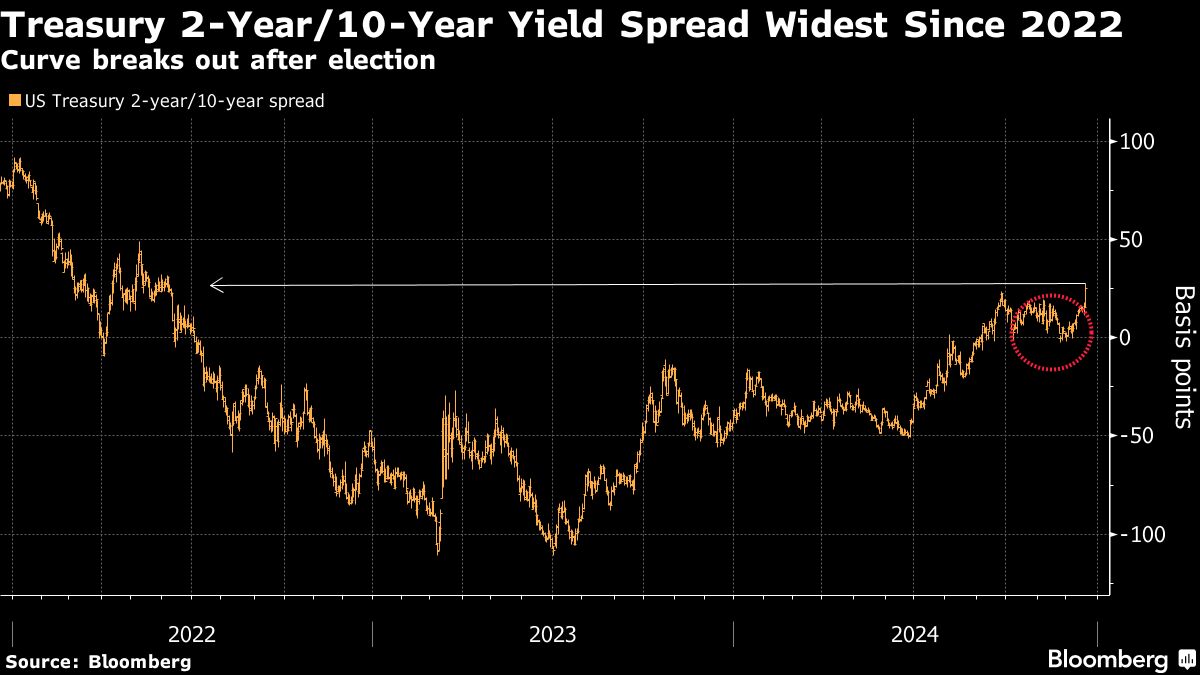Now Reading: Asian Stocks Decline Ahead of US Inflation Data: Markets Wrap
-
01
Asian Stocks Decline Ahead of US Inflation Data: Markets Wrap
Asian Stocks Decline Ahead of US Inflation Data: Markets Wrap

(Bloomberg) — Asian equities declined as investors awaited the release of the Federal Reserve’s preferred inflation gauge for fresh clues about its policy outlook.
Most Read from Bloomberg
A gauge of regional shares is set to decline for a sixth straight session, the longest losing run since April. Stocks fell in Australia and South Korea, and Japanese equities pared gains as the yen reversed losses. China’s one-year bond yield slumped to 1% for the first time since the global financial crisis, as traders ramped up bets on monetary easing.
Market attention is now on the US personal consumption expenditures data for November, due later Friday. This last major piece of data for the year follows the Fed’s latest hawkish policy pivot, and is weighing on US stock index futures in Asian trading.
Thursday’s US data, which showed faster-than-expected economic growth and robust consumer spending, has further weakened the case for imminent rate cuts. Treasuries were steady after the 10-year yield rose Thursday to 4.57%, a level last seen in May. A Bloomberg dollar index hovered around 2022 highs.
“The good news are bad news mantra has resurfaced, with stronger US economic data fueling another climb in US Treasury yields and posing a hurdle for risk sentiment,” said Yeap Jun Rong, a market strategist for IG Asia Pte in Singapore. “Looking ahead, a pullback in 10-year yields below the 4.50% level may be necessary to provide near-term market relief, with the upcoming US PCE data likely to play a pivotal role in setting its direction.”
Concerns are also growing about the implications of the Republican-led House rejecting a temporary funding plan backed by President-elect Donald Trump on Thursday, with a US government shutdown looming in just over 24 hours.
The development can “inevitably increase the market volatility in the short term, especially after Fed’s hawkish pivot two days ago,” Jasmine Duan, senior investment strategist at RBC Wealth Management Asia, said in a Bloomberg TV interview. Investors face risks from “potentially more sticky inflation and also the debt issue in the US,” she said, adding it may not be surprising to see a 5% to 10% decline in US equities in the near term.
Government funding will lapse Friday night without congressional action. The new deal includes aid for disaster victims and US farmers, but has been met with opposition from some Republicans and Democrats, who argue it doesn’t include sufficient spending cuts. The Trump-backed plan would set March 14 as the new funding deadline.



















